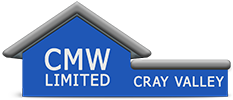
Introduction
The significance of choosing a suitable conduit in construction projects cannot be understated. Cable and containment installers, along with project managers on building sites, understand the critical role that conduit plays in ensuring the smooth functioning of electrical systems.
Understanding Rigid Metal Conduit
Rigid metal conduit, often known for its robustness and reliability, is a favoured choice in specific construction scenarios. Its ability to withstand harsh conditions and provide high-level protection to electrical wires makes it a popular option among many professionals in the industry.
Exploring Flexible Conduit
Flexible conduit, on the other hand, offers a different set of advantages that cater to specific requirements. Its adaptability and ease of installation make it a preferred choice when manoeuvrability is crucial.
Comparison of Rigid Metal Conduit and Flexible Conduit
When comparing rigid metal conduit and flexible conduit, several factors need to be considered. These include durability, flexibility, cost implications, and suitability for different environments.
Applications in Construction Projects
Both rigid metal conduit and flexible conduit find their applications in various construction projects. Understanding where each type fits best can help professionals make informed decisions regarding their implementation.
Cost Analysis
While both conduit types serve the same purpose, the costs associated with their installation and maintenance can significantly differ. It's essential to analyze these cost implications to make economical and practical decisions.
Installation and Maintenance
The installation process and ongoing maintenance requirements for both types vary, impacting the overall efficiency and effectiveness of the electrical systems.
Durability and Longevity
The durability and longevity of conduit are crucial considerations in ensuring the longevity of the electrical infrastructure. Evaluating the lifespan and endurance of both types is vital for making sustainable choices.
Safety Considerations
Ensuring the safety of the electrical systems and the personnel working with them is of utmost importance. Understanding the safety considerations related to both types of conduit is essential for risk management.
User Experiences and Expert Opinions
Gaining insights from professionals who have firsthand experience with both types of conduit, along with industry experts' opinions, can provide valuable perspectives for decision-making.
Environmental Impact
Considering the environmental impact of using different types of conduit is essential in today's sustainability-driven construction practices. Evaluating the ecological footprint of both options is crucial for environmentally conscious projects.
Future Trends and Innovations
The world of construction is constantly evolving, and so is the technology associated with it. Exploring potential future trends and innovations in conduit technology can provide a glimpse into what the future holds for the industry.
FAQs
1. What are the primary advantages of using rigid metal conduit over a flexible conduit?
- Rigid metal conduit offers superior protection against physical damage and can withstand harsh environmental conditions more effectively than flexible conduit. It is also known for its robustness and durability, making it suitable for demanding applications.
2. How does the flexibility of flexible conduit benefit construction projects?
- Flexible conduit allows easier installation around corners and through tight spaces, providing greater manoeuvrability in complex wiring setups. It is particularly useful when a high degree of flexibility is required to accommodate various configurations.
3. What are the typical cost differences between rigid metal conduits and flexible conduit?
- Rigid metal conduit is generally more expensive to install compared to flexible conduit due to its sturdier and more rigid construction. Flexible conduit, on the other hand, tends to be more cost-effective in terms of initial installation, especially in situations where complex routing and bending are necessary.
4. How challenging is the installation process for both types of conduit?
- The installation process for rigid metal conduit can be more labour-intensive and time-consuming due to its rigid nature, requiring precise measurements and specialized tools for cutting and bending. In contrast, the flexible conduit installation is often more straightforward and adaptable, requiring less effort for manoeuvring around obstacles and tight spaces.
5. What measures should be taken to ensure the longevity of the chosen conduit type?
- Regular inspections and maintenance are essential for ensuring the longevity of both types of conduit. For rigid metal conduit, protecting it from corrosion through appropriate coatings and proper grounding is crucial. For flexible conduit, ensuring that it is not subjected to excessive bending or pulling beyond its specified limits can help maintain its longevity.
6. Are there any notable safety concerns associated with either type of conduit?
- While rigid metal conduit provides superior protection against physical damage and fire, improper installation or corrosion can compromise its effectiveness. Flexible conduit, although more adaptable, may be less effective in high-temperature environments and can be prone to damage if not installed and appropriately secured. It's crucial to adhere to relevant safety standards and guidelines during the installation and maintenance of both types of conduit to ensure the safety of the electrical infrastructure and personnel.
Conclusion
With the information in this comprehensive guide, you can make informed decisions about choosing the suitable conduit for your construction projects. Both rigid metal conduit and flexible conduit have their distinct pros and cons. Understanding the specific needs of a project and the environment it operates in is crucial in determining the most suitable conduit type.
If you want to take a closer look at our range of RIgid Metal Condiut, click here. If you want to contact or find out more about this blog posts author, Dave Dann, click here
Related Products
